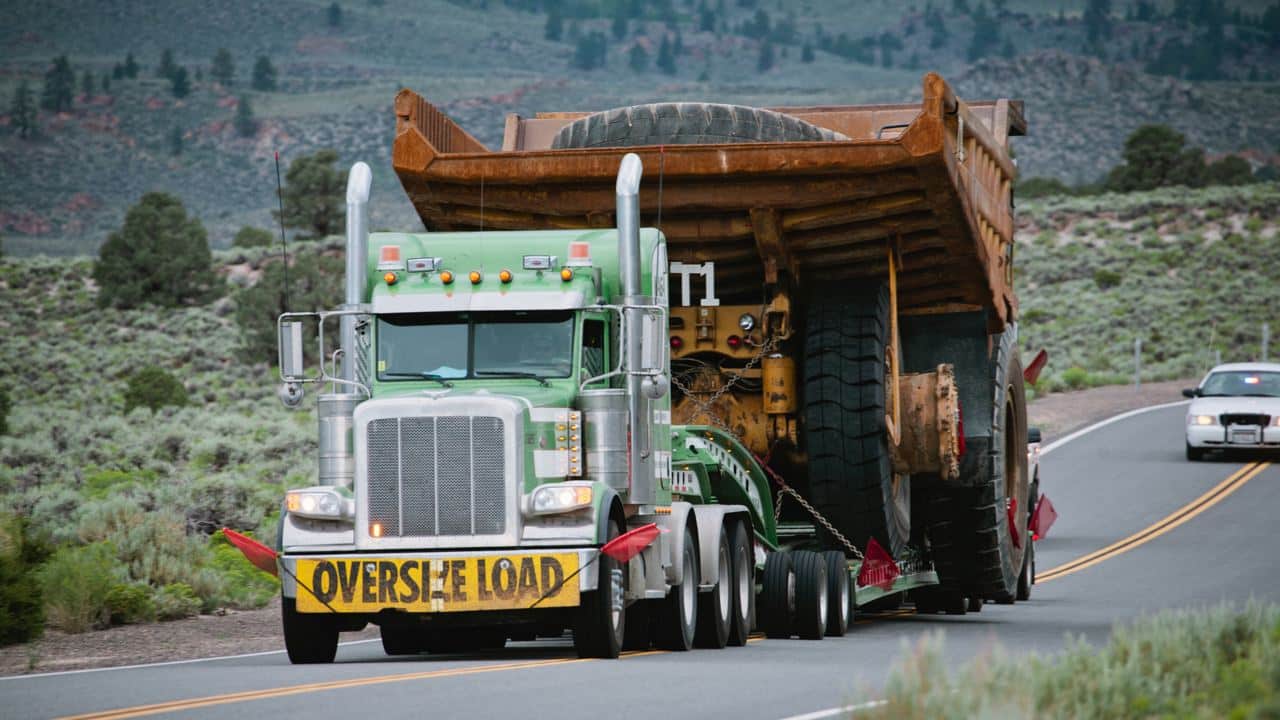Picking a career can feel like wandering an endless labyrinth. Every turn feels important when your livelihood depends on it. Choosing trucking as a career could be a path worth pursuing, at least for some folks. But the question remains: is truck driving a good career?
To start, let’s explore this industry’s intricacies and see what it entails – necessary knowledge before making such an important decision in life that would eventually chart your professional future into new heights and horizons.
The Life of a Trucker
Truck driving goes far beyond jumping in the driver’s seat of a big rig. It’s an essential part of the global supply chain that keeps commerce from seizing. As one expert explained, truckers are like blood vessels transporting nutrient-rich goods all over the place- coast to coast and beyond.
Don’t assume they press pedals for hours; their workday is way more complex than that! Embracing the trucking truth reveals the depth and complexity of a trucker’s life. They navigate a challenging landscape, overcoming obstacles and adapting to a dynamic industry. With a job like this, careful route planning is crucial, as is complying with road rules and ensuring vehicles are free from issues and stress when any paperwork needs doing. Their record-keeping skills must be impeccable since regulatory requirements can change over time. Many things must fall into place where being on the open road offers only limited predictability.
The Pros of a Trucking Career
Secure career option
Are trucking a secure career option? The answer is yes! If people keep buying things, we will need drivers to transport those products. Therefore, the demand for truck drivers remains high and steady. Yes, it’s an excellent time to become one – especially if you seek job security.
Competitive salary
A CDL truck driver salary is another desirable feature of a truck driving profession that attracts many potential candidates. Their paycheck often surpasses the average wage; in fact, experienced and skilled drivers make considerably more than that. Other factors can increase earning capacity, such as how far someone goes on trips or what they are hauling. Experienced drivers with years of driving under their belt generally bring home even more bacon because they can command higher rates based on their history of successful deliveries without hiccups, along with an array of other reasons which only add up in favor of being employed as a driver!
The Call of the Open Road and Valuable Life Skills
Trucking is an occupation that offers a unique set of benefits- freedom, and adventure! Each morning brings fresh asphalt stretches, new landscapes, and fresh destinations. The open road instinctively attracts those who have a thirst for discovery.
Skills development
Besides an outstanding professional career choice due to high demand, truckers gain ample fundamental practical skills that can be invaluable in their personal life. Time management becomes second nature as you must meet strict deadlines accurately. Patience stems from countless hours on highways alone or away from loved ones. Truck drivers start being self-reliant while improving their resourcefulness capabilities. Problem-solving also comes naturally since emergencies pop up now and then.
The Cons of a Trucking Career
Truck driving requires mental and physical discipline from its professionals. And it isn’t a squared-away career life like any other job. Before you take the plunge, here are some points to consider:
Extended Hours and Irregular Schedules
Being on the roads in itself is demanding hard work, knowing that schedules must be met or it’ll cause destruction with clients who expect delivery on time religiously. This leads truckers to spend most of their days traveling.
Schedules can change without notice; thus, weekend trips add up fast for long-haul drivers – Imagine being on duty during Christmas day instead of enjoying turkey with family, which can lead to an unhealthy balance between the work-life-schedule routine.
Loneliness and Time Away from Family
Trucking is about seat time! Being zipped across chains demands spending weeks (sometimes months) away from your family and friends at home. FaceTime or Video calls can tie people together but cannot replace the human touch that everyone needs somewhere in life. Trucking may not be suitable for those with young families requiring daily love tonic.
Keep these factors in mind while joining a professional truck driving company- It’s better to be safe than sorry later.
Health issues
If you’re working in the trucking industry, there’s a high chance that you will be seated for prolonged hours, which could reduce any physical activities. The limited movements won’t help either when coupled with irregular meals while on the road; this definitely contributes negatively to one’s health.
That’s not even mentioning the unhealthy food options often available at rest stops and fast-food chains- who can resist a tasty burger? But unfortunately, such foods carry negative outcomes like obesity and heart disease. Worse yet, getting into food comas or sleep disorders are common, which lead to stress-related conditions too. But these issues are all manageable if steps are taken seriously toward your well-being.
Skills for a Successful Trucking Career
If you are thinking of pursuing a trucking career, the first thing you must do is acquire your CDL, but it continues beyond there. A successful trucker should possess an array of versatile skills. Since tight deadlines are the norm in this profession, impeccable time management abilities are prerequisites and will go a long way.
But stamina and good health must be addressed, too, since drivers must put in long hours on the road. Basic knowledge of mechanics is pivotal for handling breakdowns during journeys as well.
In addition to technical expertise, soft skills act as pillars for success: patience, stress management, self-motivation, and solitude coping capability stand tall. This definitely gives these attributes some thought before putting one foot forward into this industry!
Find out what are the highest paying jobs in the industry.
Understanding the CDL Cost: Investing in a Trucking Career
Becoming a professional truck driver requires obtaining a CDL (Commercial Driver’s License), and it’s essential to understand the associated costs involved. The CDL cost can vary depending on factors such as location, training program type, and additional endorsements pursued. Typically, CDL training programs encompass classroom instruction, behind-the-wheel training, and examination fees. Additionally, aspiring Trucking Pros may need to budget for expenses like medical examinations, drug testing, permit fees, and study materials. While the initial CDL cost may seem significant, it’s crucial to view it as an investment in a potentially rewarding and prosperous career. Trucking Pros often find that the long-term benefits of obtaining a CDL far outweigh the upfront expenses, as it opens up a world of opportunities within the trucking industry. By recognizing the value of investing in their CDL, individuals can embark on a path towards a fulfilling and financially stable future as skilled truck drivers.
Conclusion
Becoming a truck driver could be one of the best things to have happened in your life, given that it works for you. The career promises several benefits, like secure employment, competitive remuneration packages, unbridled freedom while driving, and polished skills from on-the-job experience. However, there are also some hurdles that drivers must clear, such as long hours on the road, which can lead to isolation and related health issues.
So whether you’re starting out or looking up at truck driving as part of your retirement strategy, reflect deeply on your specific requirements while considering all merits and demerits before taking the leap further into this vocation. Trucking is much more than mere work; it’s an adventurous way of living that might suit just fine – if only you enough think so!
Frequently Asked Questions
1. What qualifications do I need to become a truck driver?
When it comes to becoming a truck driver, you will be required to obtain your Commercial Driver’s License (CDL). Acquiring this license involves passing both written tests and driving tests. Depending on the state in which you reside, additional requirements may apply.
2. Is it difficult balancing family life while working as a trucker?
Managing career and family can be challenging, particularly for long-haul truck drivers. Yet there’s an easy way out too! Many veteran truckers choose shorter routes that let them stay local or regional, sort their time efficiently, keeping their priorities intact simultaneously with using communication technologies to bridge the gap between work and home.
3. How much can one expect to earn as a part of the profession?
The earnings vary based on several factors;
their expertise level,
the type of hauling they’re doing,
the distances they would have covered during shift rotations, and finally, where they are employed!
That being said – usually – most drivers find their salaries utterly competitive compared with other jobs prevalent elsewhere!
4. Can you advance your career in trucking?
If you’re looking for a job where there’s plenty of room to grow, then the trucking industry is an excellent choice! Those with experience and additional training can become trainers, supervisors, dispatchers, or branch into management roles. In addition, drivers can also choose to open their own business as “owner-operators.”
5. Could new automation technology affect the future of truck driving jobs?
As technology advances more rapidly than we’ve ever seen before, businesses around the world are questioning how much it will impact various industries—including the trucking sector. Indeed, some research inquiries are focusing on automated trucks as potential substitutes for human-driven alternatives.
Despite advancements and discussions around self-driving commercial lorries, however, humans still play a vital role throughout operations and maintenance processes. Truck drivers use non-driving tasks like loading and unloading cargo and also necessary abilities leading towards ensuring smooth operation constantly.
Curious about trucking as a career? Maybe you are considering it — either way, exploring the world of trucking will offer you valuable insights. Remember not to focus on only what’s at the end but enjoy the journey itself, for it is every journey starts with a solitary step. Are you prepared to take that first step?
Get started by reading out detailed guide on how to obtain a CDL.


